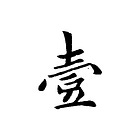In the Western World of today, Chinese philosophy (and, more broadly, Chinese culture in general) is widely perceived through the lens of a kind of strange, super-cultural mysticism. With our delivery of this novel translation, we hope to dissipate some of the obfuscating misconceptions present in other, more creative interpretations of this text through a demonstration that the Dao is not some kind of arcane artifact of a lost, ancient civilization. The Dao is, instead, just a philosophy—a secular school of thought like any other—which remains alive and well in our today… albeit at times by a different name.
The Dao De Jing (道德经), typically attributed to Laozi1, is a text dated to the 6th-century BCE which describes Virtue in Praxis2—in other words, the practical, real-world, social, logical, and empirically observable reasons why human beings should and do act in good faith3. As such, it finds friends in the Pyrrhonism of the Classical Greeks, as well as in the company of Empiricists and Epistemologists who have lived in every age of man. From Locke and Hume to Nietzsche, Sartre, and Beauvoir, the Dao finds itself, in the end, both ancestor and brother to our very own discipline.
That is to say… to Existentialism.
With enough study done—in rigor and good faith4—one will quickly come to the realization that all empirical systems of belief eventually trend toward finding agreement in each and all of their aspects and principles. This is because they are each and all simply just their own science5; empirical methodologies which draw all data from the common, physical reality we share.
As the products and progeny of a Serious world—of a dogmatic culture and society—Westerners (or perhaps just Americans in particular) tend to search for canon in the world—for objective, immutable, Metaphysical Truths6 which they may then cling to as guarantors of their own knowledge of what is “real”, what is “right”, and what is “good”. They attempt to find the “original”—the “real” text—but in so-doing fail to either recognize or acknowledge that there is no such thing. The Dao De Jing is not the Bible, nor is it any other kind of “holy book”—not a dead, dogmatic text which claims absolute, immovable, inherent knowledge of Metaphysical Truth. The Dao is and has been since its conception instead a living, breathing work of myth and folklore—a human story of stark empiricism; changing, moving, and evolving with the times.
The Dao is not true because it is and always will be the “Truth”. Instead, the Dao remains true because it is constantly made and remade to represent the truth which we know.
Such is made abundantly clear in the very first line of the text:
道可道,非常道;名可名,非常名
“A truth which has been established … cannot be considered Inherent.”
老子, lǎozǐ. lit. old master
The namesake of this translation, and a quite-literal translation of the original text of the title.
Good faith. In the Sartrean sense, meaning to act with self-awareness and authenticity.
Science. Any school of thought which possesses principles motivated and informed by means of empirically verifiable data.
Seriousness. In the Sartrean sense, a culture which touts a dogmatic, rigid, and inflexible philosophy which assumes that it already knows and understands the inherent nature of truth.
Metaphysical Truths. Meaning a priori knowledge in the Kantian sense; in other words, the assumption and presupposition of true knowledge not derived from empirical observation.




